Films from the country "hongrie", sorted by revenue
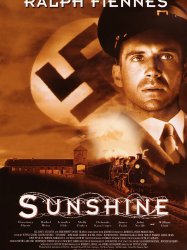
Sunshine (1999)
, 3h1Directed by István Szabó
Origin Hongrie
Genres Drama, War, Historical, Romance
Themes Films about religion, Political films, Films about Jews and Judaism
Actors Ralph Fiennes, Rosemary Harris, Rachel Weisz, Jennifer Ehle, Hanns Zischler, Deborah Kara Unger
The 19th-century patriarch of the Hungarian-Jewish Sonnenschein family is a tavern owner, who distills and makes his own popular liquor in Austria-Hungary. From the recipe, the liquor, called "Taste of Sunshine," is commercially made by the next generation of the family who gain great wealth and prestige from the business. That generation of the family lives many happy and privileged years and the children are highly educated. The oldest son, Ignatz (the first of 3 generational roles played by Ralph Fiennes), a fast rising judge, falls in love and has an affair with his first cousin, Valerie (Jennifer Ehle), against his father's wishes. The second son, Gustave (James Frain), becomes a medical doctor. Ignatz is asked by a chief judge to change his Jewish surname if he wishes to be promoted within the judiciary. Ignatz, his brother, and his cousin Valerie all happily change their last name to Sors - a "more Hungarian" name.
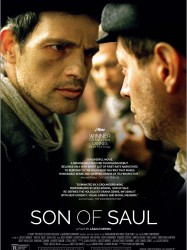
Son of Saul (2015)
, 1h47Directed by László Nemes
Origin Hongrie
Genres Drama, War, Thriller, Horror
Themes Films about religion, Political films, Films about Jews and Judaism
Actors Géza Röhrig, Levente Molnar, Urs Rechn, Sándor Zsótér, András Jeles
It is early October, 1944. Saul Ausländer (Géza Röhrig), a Hungarian-Jewish prisoner in Auschwitz works as a Sonderkommando member, burning the dead. One day he finds the body of a boy he takes for his son. He tries to salvage the body from the flames, and find a rabbi to arrange a clandestine burial. Meanwhile other members of the Sonderkommando learn about their impending extermination, rise up and destroy the crematorium. Saul keeps focused on his own plan to pay the last honours to a son he never could take care of before.
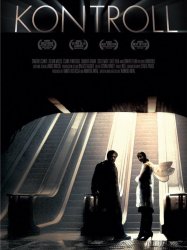
Control (2003)
, 1h45Directed by Nimród Antal
Origin Hongrie
Genres Thriller, Comedy, Crime
Themes Transport films, Rail transport films
Actors Sándor Csányi, Péter Scherer, György Cserhalmi, Enikő Eszenyi
Bulcsú (Sándor Csányi) is a ticket inspector on the Budapest Metro; he spends his nights sleeping on the train platforms, and hasn't left the underground ever since he started working there. His ragtag team of inspectors - consisting of the veteran Professzor (Zoltán Mucsi), the disheveled Lecsó (Sándor Badár), neurotic narcoleptic Muki (Csaba Pindroch) and dimwitted greenhorn Tibi (Zsolt Nagy) - is routinely disrespected and assaulted by the commuters, who continue to evade paying fines in a variety of ways.
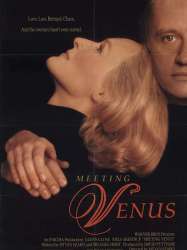
Meeting Venus (1991)
, 1h59Directed by István Szabó
Origin Hongrie
Genres Drama, Comedy, Comedy-drama, Romance
Actors Glenn Close, Niels Arestrup, Erland Josephson, Macha Méril, Jay O. Sanders, Marián Labuda
Un chef d'orchestre hongrois est appelé à l'Opéra de Paris pour diriger Tannhäuser de Richard Wagner, et rencontre de nombreuses difficultés.

An American Rhapsody (2001)
, 1h46Origin Hongrie
Genres Drama, Biography
Themes Films about immigration
Actors Nastassja Kinski, Scarlett Johansson, Tony Goldwyn, Mae Whitman, Emmy Rossum, Larisa Oleynik
In 1950, a Hungarian couple, Peter and Margit, are forced to flee from their oppressive Communist country for the USA with their eldest daughter Maria. Unfortunately, they are forced to leave behind their infant daughter, Suzanne, who is raised by a kind foster couple. Five years later, Peter and Margit arrange for the American Red Cross to bring Suzanne to their new home in Los Angeles. There, the perplexed young girl is forced to accept her sudden change in home and country, which leads to a troubled upbringing. At age 15, Suzanne, rebellious and unsure of herself, tries to come to terms with her roots and decides to travel back to Budapest, Hungary, to unravel her past and to find her true identity.
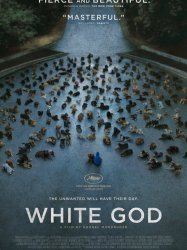
White God (2014)
, 1h59Directed by Kornél Mundruczó
Origin Hongrie
Genres Drama
Themes Films about animals, Environmental films, Films about dogs, Political films, Mise en scène d'un mammifère
Actors Sándor Zsótér, Kornél Mundruczó, Orsolya Tóth, János Derzsi, Péter Gothár
The film follows the mixed-breed dog Hagen, who moves with his 13-year old guardian Lili into the home of Lili's estranged father. Unwilling to pay a harsh "mongrel" fine imposed by the government, Lili's father abandons Hagen. Determined to find Lili again, Hagen soon attracts a pack of 250 half-breed followers who start an organised uprising against their human oppressors.
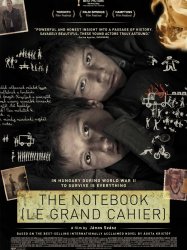
The Notebook (2013)
, 1h50Directed by János Szász
Origin Hongrie
Genres Drama, War
Themes Films about children, L'enfance marginalisée, Jumeaux ou jumelles
Actors Ulrich Thomsen, Ulrich Matthes, Piroska Molnár, Péter Andorai, Orsolya Tóth, János Derzsi
L'histoire poignante de deux jumeaux élevés par leur grand-mère dans un village frontalier et qui s'efforcent de survivre dans un monde sans pitié. Ils doivent apprendre par eux-mêmes tout ce qui est nécessaire à leur survie. Isolés, affamés et frigorifiés, ils tiennent leur journal. Ils notent ce qu'ils ont vu, ce qu'ils ont entendu, ce qu'ils ont fait, ce qu'ils ont appris. Ils restent certes en vie, mais leur cœur et leur corps s'endurcissent.
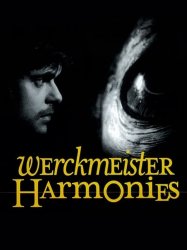
Werckmeister Harmonies (2001)
, 2h25Directed by Béla Tarr, Tommy Wiseau
Origin Hongrie
Genres Drama
Actors Hanna Schygulla, Đoko Rosić, János Derzsi, Ferenc Kállai
The film can be seen as an allegory of post-World War II Eastern European political systems - told as a black-and-white cinematic poem with 39 long, single-camera takes. It examines the brutalization of a society, its political systems and ethics through the metaphor of a decaying circus whale and its star performer. It is set in a desolate, isolated small town in Hungary during Soviet times.
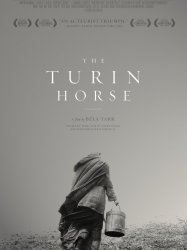
The Turin Horse (2011)
, 2h26Directed by Béla Tarr
Origin Hongrie
Genres Drama
Themes Films about animals, Films about horses, Mise en scène d'un mammifère
Actors Volker Spengler, János Derzsi
"In Turin on 3rd January, 1889, Friedrich Nietzsche steps out of the doorway of number six, Via Carlo Alberto. Not far from him, the driver of a hansom cab is having trouble with a stubborn horse. Despite all his urging, the horse refuses to move, whereupon the driver loses his patience and takes his whip to it. Nietzsche comes up to the throng and puts an end to the brutal scene, throwing his arms around the horse’s neck, sobbing. His landlord takes him home, he lies motionless and silent for two days on a divan until he mutters the obligatory last words, 'Mutter, ich bin dumm!' ['Mother, I am stupid!' in German] and lives for another ten years, silent and demented, cared for by his mother and sisters. We do not know what happened to the horse.

Cat City (1986)
, 1h36Origin Hongrie
Genres Comedy, Adventure, Animation
Themes Films about animals, Spy films, Comedy science fiction films, Film d'animation mettant en scène un animal, Films about cats, Mise en scène d'un mammifère
Actors László Sinkó, Ilona Béres, Gyula Bodrogi, András Kern, Ferenc Kállai
The film opens with a Star Wars style text scroll, which tells the main situation: In year 80 AM Anno Mickey Mouse, the mice of Planet X are threatened by humiliation and total apocalypse. The well-organized, fully equipped gangs of evil cats are aiming to wipe out the mouse civilization totally, not caring for the old conventions between mice and cats. But in the last moment, when the mouse leaders are beginning to consider leaving the planet, a new hope rises...
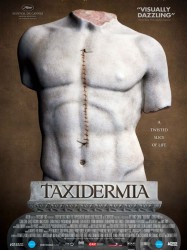
Taxidermia (2006)
, 1h31Directed by György Pálfi
Origin Hongrie
Genres Drama, Comedy, Comedy-drama, Horror
Themes Cooking films
Actors Piroska Molnár, Erwin Leder
The film begins in a remote Hungarian military outpost, where orderly Morosgoványi Vendel lives a wretched existence of servitude beneath the heel of his lieutenant, Öreg Balatony Kálmán. Condemned to performing menial duties for the officer and his family while sleeping in an unheated shack next to the latrines, Morosgoványi frequently escapes into fantasy. So realistic are these fantasies that in one ambiguous instance, Morosgoványi sleeps with and impregnates the lieutenant's wife and "wakes up" to find himself engaged in an act of sodomy with a slaughtered pig. Upon seeing this, the lieutenant promptly executes Morosgoványi and raises the son, Balatony Kálmán, as his own.

The Whiskey Bandit (2017)
, 2h6Directed by Nimród Antal
Origin Hongrie
Genres Thriller, Action, Crime
Themes Heist films, Gangster films, Escroquerie
Actors Judit Pogány, Sándor Zsótér
L'histoire vraie du braqueurs de banque hongrois Attila Ambrus, extrêmement populaire en Hongrie, dont la particularité était de boire du whisky dans les bars pour se donner du courage avant ses braquages. Après avoir souffert d'une enfance difficile, devenu joueur de hockey sur glace professionnel, il se lance dans une nouvelle carrière dans les années 90 tout en dévalisant une trentaine de banques et de bureaux de poste. Véritable gentleman, il offrait des bouquets de fleurs aux caissières. Mais un beau jour, alors qu'il revient sur ses pas pour récupérer son chien, la police l'arrête avant qu'il ne puisse se sauver. En détention, il se remémore de sa vie, de son enfance passée une grand-mère qu'il adorait avant d'être confié à un internat très strict. Puis vient le temps de l'armée, sa désertion, son début de gardian dans une équipe de hockey sur glace, son sport professionnel depuis son enfance, avant qu'il ne devienne un criminel célèbre.

X - The eXploited (2018)
, 1h54Origin Hongrie
Genres Thriller, Crime
Themes Serial killer films
Actors Mónika Balsai, Juli Básti, Ákos Kőszegi
Depuis le suicide quinze ans auparavant de son mari qui était inspecteur de police comme elle, Éva Batiz subit des crises de panique lorsqu'elle s'approche trop des scènes de crimes. Elle préfère s'isoler dans son bureau dans lequel elle analyse méticuleusement les indices récoltés par ses collègues. Son esprit analytique lui permet de déterminer les erreurs qu'ils ont pu commettre lors de leur enquête. Par ailleurs, en privé, elle doit tenir tête à sa fille adolescente rebelle et violente avec ses camarades. Dans une Hongrie contemporaine rongée par la corruption et les complots, mais également ravagée par des guérillas urbaines, elle découvre un jour qu'un tueur en série sévit à Budapest, un meurtrier qui maquille ses crimes en suicides. Alors que ses supérieurs refusent de la prendre au sérieux, elle et son nouveau collègue Peter découvrent que le criminel laisse des messages cachés qui leur font croire qu'il tue à des fins politiques et radicales. Lorsqu'un homme survit à son agression dans sa luxueuse villa, la policière fait le lien avec les différentes affaires et s'aperçoit que les meurtres en série sont connectés à certaines hautes sphères politiques et nationales d'hier et d'aujourd'hui.

Sunset (2018)
, 2h22Directed by László Nemes
Origin Hongrie
Genres Drama, Historical
Actors Susanne Wuest, Vlad Ivanov, Levente Molnar, Mónika Balsai, Urs Rechn, Sándor Zsótér
Budapest, Belle Époque pour la monarchie austro-hongroise et certaine noblesse, prestigieuse et décadente, été étouffant.

A martfűi rém (2016)
Origin Hongrie
Genres Drama, Thriller, Comedy-drama, Horror, Crime
Actors Zsolt Anger, Mónika Balsai
La Hongrie, dans les années 1960. À la suite d'une série de meurtres atroces, la petite bourgade de Martfú est sous le choc. Tandis qu’un innocent, accusé à tort, est condamné pour des crimes qu’il n’a pu objectivement commettre, un tueur psychotique rôde dans les environs et continue d’assassiner d’autres jeunes femmes. Obsédé par cette affaire, l’inspecteur chargé de l’enquête subit la pression du procureur qui souhaite voir l’auteur de ces meurtres rapidement pendu.
 Connection
Connection